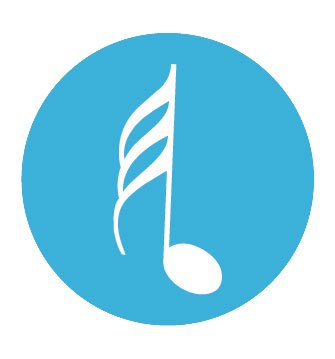For singers and actors, whether professional or amateur, proper vocal training can make all the difference to outstanding performances. Familiarize yourself with all that proper vocal training entails, from warm-up exercises to physiology, from finding a coach to tuning your “instrument”.

Warm Up
A “warm-up” is just as important for singers as it is for athletes. You wouldn’t run a marathon without getting your muscles loosened up and the blood pumping. In the same sense, your physiological vocal apparatus needs to go through some preparatory exercises before you get into your usual practice routine.
- Vocal Warm-up: Putting Your Best Voice Forward – The American Academy of Otolaryngology offers a thorough article on healthy vocal warm-ups for singing and public speaking.
- Vocal Warm-ups for Actors – This list of vocal warm-ups targets actors as well as singers.
- A Collection of Singing Warm-Ups – This collection of videos offers examples of short warm-ups for singers to use before practicing.
- 20-Minute Vocal Warm Ups – This article from the NY Eye & Ear Infirmary explains the importance of warming up the voice and provides example exercises.
- Dr. Titze’s Favorite Five Warm-ups for Singers – The National Center for Voice & Speech provides singers with five reliable ways to warm up.

Tips
Ask five singers for their top tip, and you’re likely to get five different answers. However, a few tips do regularly appear on “top ten”-style lists. For example, most serious singers avoid shouting, whispering or otherwise straining their voices.
- Learn to Sing: Top Tips – This video tutorial offers the “Top Tips” for singing students from the BBC.
- Voice Check: 10 Tips or Healthy Singing – The Theatre Communications Group outlines ten tips for vocal health.
- Tips to Prevent Voice Problems – These tips from the National Institute on Deafness and Other Communication Disorders offers tips for the general public on healthy use of the voice, for daily life and when performing.
- Tips for Professional Voice Users – The Voice Center of Johns Hopkins Medicine School and the Greater Baltimore Medical Center offers several vocal tips for professional singers.
- Tips on Maintaining Excellent Vocal Health – Dr. Milan Amin of NYU Voice Center offers tips for performers, teachers and anyone who regularly uses their voice for singing or public speaking.

Vocal Health
Vocal health may include many components. For optimal health, you should practice good vocal hygiene, avoid strain or “vocal overuse” and follow some simple practices, like staying hydrated.
- Vocal Health Information – This informational booklet from Duke University Voice Care Center outlines basic information for vocal health.
- Vocal Health – The American Theatre website offers tips, common diagnoses and links to relevant interdepartmental resources for singers.
- NASM-PAMA Advisories on Neuromusculoskeletal and Vocal Health – This collection of articles from the National Association of Schools of Music gives an overview of the overlapping considerations of vocal and neuromusculoskeletal health.
- The Professional Voice – The Voice Science Network provides vocal health resources tailored for professionals.
- Vocal Health Articles – The Boston Singers’ Resource provides a compendium of in-depth articles on vocal health for singers.

Voice Training
Voice training may be appropriate for singers, whether for professional preparation or simply for fun. Finding a good vocal coach comes down to both the teacher’s expertise and your own preferences for particular vocal training methods.
- The National Association of Teachers of Singing – The NATS offers articles on voice training, a directory of singing teachers and other US-oriented resources.
- The Voice and Speech Trainers Association – VASTA offers resources for anyone interested in developing their voice, as well as a directory of professional voice trainers.
- The Association of Teachers of Singing – The AOTOS offers online resources for singers around the world, plus a list of vocal teachers throughout the United Kingdom.
- Which Is the Best Vocal “Method” to Study? – This magazine article gives an overview of different “methods” of voice training.
Other Resources
While there’s no substitute for vocal training in person, you can also deeply improve your singing and speaking abilities through online resources. Many professional organizations, schools and non-profits offer in-depth materials to the public, free of charge.
- 10 Resources for Teaching Music – This article offers useful tips for singing students as well as teachers.
- Big Big Sing – These practical steps can help you start up a choir.
- The Orchestra Sings – Musicians Way offers a hub of online resources for aspiring singers and musicians.
- Sing London – This non-profit organization organizes large-scale, interactive sing-alongs in public places.
- Online Vocal Pedagogy Resources – The Johns Hopkins Music Entrepreneurship & Career Center offers a list of resources covering vocal topics such as proper posture, technique, associations, and warm-ups.
- Vocal Coaching Articles – These “Editor’s Pick” articles cover specific themes in vocal training.
- Tips on Popular Singing – An article written by famed singer Frank Sinatra, in collaboration with his vocal teacher, John Quinn.
Home Theater Seating
- No Interest Financing
- Stadium Seating Home Theater
- Brown Leather Recliner
- Recliner Chairs Movie Theater
- Reclining Theater
- Sofa Movie Theater
- Theater Recliners For Sale
- Single Theater Chairs
- Microsuede Recliner
- Modern Recliners
- Sofa Sectionals
- Luxury Theater Seating Furniture
- Loveseat Home Theater Sofa
- Home Theater Seating Coupon
- Leather Relaxing Chairs
Decor & Accessories
- Theatre Room Decor
- Quality Leather
- Recliners With Electric Controls
- Leather Recliner With Massage And Heat
- Home Theater Room Decor
- Home Theater Ideas On A Budget
- Octane Flex With Risers
- Theatre With Reclining Seats
- Leather Tufted Recliner Chair
- Ultra Modern Recliners
- Bolt Xs400 By Octane Seating
- Storage Sectional
- Beckett 41473
- Chairs That Light Up
- Modern Black Leather Sofa Set
Top Pages
- Large Single Chair
- Theatre Chairs For Sale
- Auditorium Chairs for Sale
- Octane Flex HR Collection
- Octane Turbo XL700 Collection
- Palliser Theatre Seating
- Recliners for Sale Cheap
- Home Theater Seating Atlanta
- Affordable Theater Seating
- Octane Dream HR Collection
- Sofa Chaise
- Chairs For Tv
- What Resolution Is 4K
- Small Theater Chairs For Home
- Black Recliner Furniture

